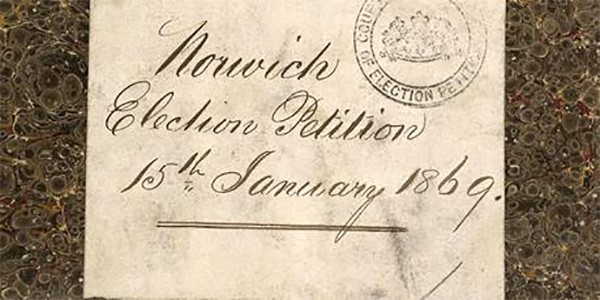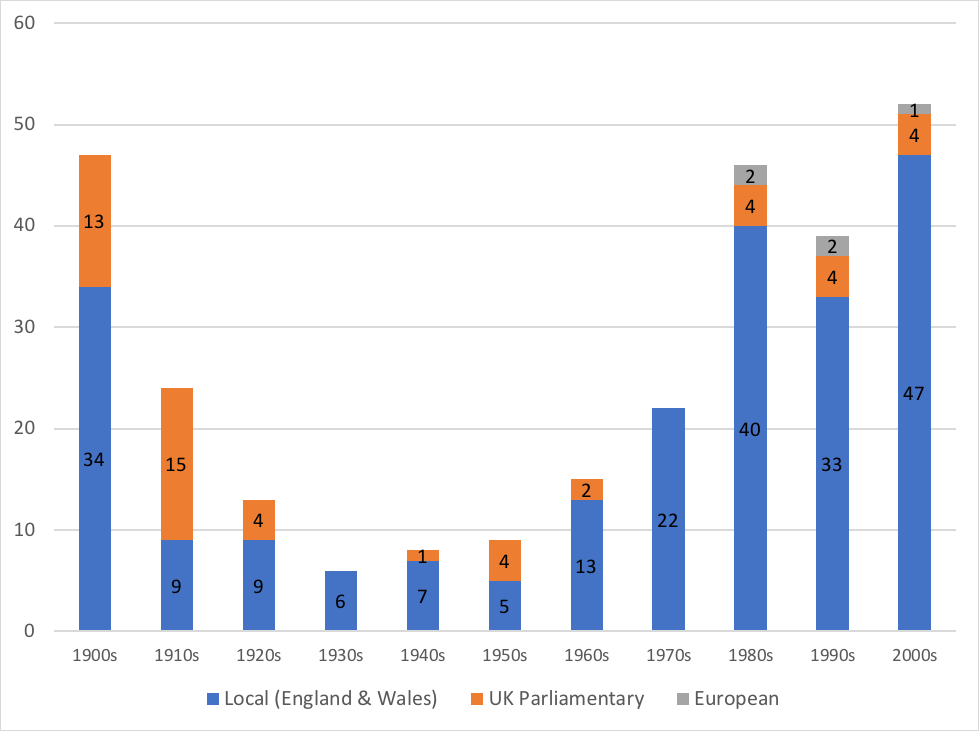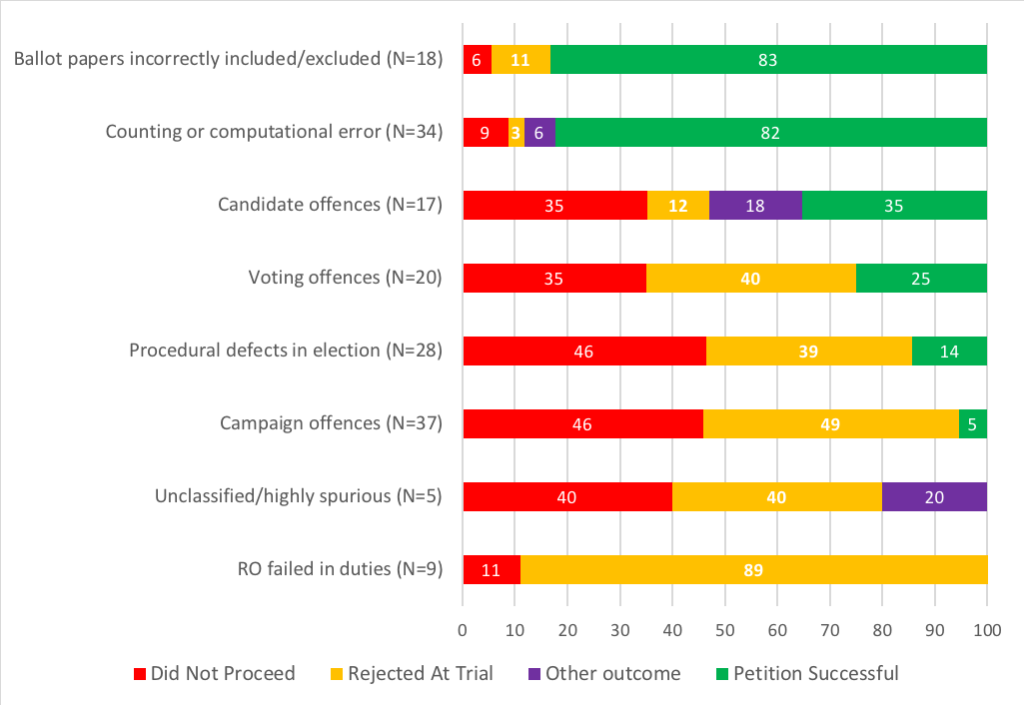Election petitions remain important to the integrity of UK elections, but reforms are urgently needed
Until recently, widespread confidence about the integrity of UK elections meant that almost no information was available about election petitions, the only legal mechanism through which a UK election result can be challenged. Stuart Wilks-Heeg and Caroline Morris present significant new data about elections petitions from 1900 to 2016. Their findings fill an important gap in our historical knowledge about electoral integrity and inform current debates about the need to reform the petition mechanism.

Picture: Parliament.uk/Parliamentary Copyright
Beyond a few specialist election lawyers, knowledge of election petitions is rare. In its current form, as a private legal action heard by a special election court, the election petition was part of the Victorians’ efforts to tackle electoral corruption. As vote-buying and intimidation were eradicated, the mechanism was widely assumed to have become redundant. During the 20th century, the number of cases dwindled, and no systematic records were kept of legal challenges to election results. Among the few cases that attracted any attention, the best known related to the overturning of Tony Benn’s return at the 1961 Bristol South-East by-election, on the grounds that he was a member of the House of Lords.
However, since 2004, there has been a renewed interest in election petitions. The most obvious trigger was the re-emergence of petitions alleging large-scale corruption. Infamously, in election circles, Richard Mawrey QC’s (2005) judgment on the Aston and Bordesley Green election petitions referred to ‘evidence of electoral fraud that would disgrace a banana republic’. Petitions have also revealed failings in the running of elections. For instance, an election court voided a close result at the 2004 Hull City Council elections after finding that voters in Derringham ward had instead received postal ballots relating to the election in Marfleet ward.
The lack of data about past petitions begs the question of whether 20th-century UK elections were as free from malpractice and maladministration as has been assumed. It is also evident that calls for the reform of the petition mechanisms, notably in the Law Commissions’ (2016) review of electoral law and the Pickles (2016) report on electoral fraud, have been unable to draw on the details of more than a few dozen petitions.
Our research has enabled us to plug these gaps. We have assembled a dataset of 302 election petitions lodged from 1900 to 2016, including all petitions relating to UK general elections, UK elections to the European Parliament and local council elections in England and Wales. We draw on the records held by the National Archives, together with details of more recent petitions available from the Electoral Commission and other sources. We have also undertaken detailed analysis of 167 of the 168 petitions submitted from 1977 to 2016.
From our findings, it is evident that, while not widely used, at no stage did the petition mechanism become entirely redundant. Figure 1 shows the number of election petitions lodged during each decade from 1900–09 to 2000–09. While the decline in the number of petitions in the period1910–39 is evident, the increase in the number of petitions after the 1970s is equally notable. It is also clear that, in contrast to the early 20th century, the vast majority of election petitions in recent decades have been used to challenge local, rather than parliamentary, election results.
Figure 1: Election petitions lodged, by decade and election type, 1900–2009

Indeed, our data underlines how election petitions are now used in very different ways to those envisaged by the Victorians. As Figure 2 shows, the great majority of successful petitions since 1977 concerned administrative mistakes rather than corrupt and illegal practices. Correcting errors made at local election counts has become the primary effective use of the petition mechanism. There are no grounds to suggest that such problems of maladministration are widespread in British elections. However, our data highlights that mistakes do sometimes occur and that a mechanism is needed to deal with them.
Figure 2: Outcomes of election petitions lodged from 1977–2016, by primary grounds for petition (%)

Our research lends clear weight to the case for reform. We echo the primary criticisms of the petition process advanced in recent reviews. These include the legal and financial barriers facing petitioners, the bar on Returning Officers bringing petitions, the assumption that election challenges are a private concern, rather than a matter of public interest, and the absence of other mechanisms for review or complaints where the outcome of the election is not in doubt.
There is an obvious public interest served by many petition cases. It is incongruous that petitions must be launched as private legal actions. Most notably, the five successful petitions lodged since 2004 with respect to voting offences clearly exposed the vulnerabilities of postal voting and have had significant impact in triggering legislative reform. We therefore concur with those who advocate bringing petitions into the ordinary courts.
Finally, there is also a clear need for a more efficient and less costly mechanism to correct results arising from administrative errors. It can take many months until a universally acknowledged error at an election count can be officially corrected and, as private legal actions, petition hearings generally result in legal costs of tens of thousands of pounds. It is unacceptable that candidates or electors must currently instigate these costly proceedings, even where the Returning Officer accepts s/he has made a mistake. We would also endorse proposals for a means of making official complaints about the administration of an election, for instance to an Ombudsman, without seeking to challenge the result.
This post represents the views of the authors and not those of Democratic Audit.
This article is based on the authors’ paper, ‘“Reports of My Death Have Been Greatly Exaggerated”: The Continuing Role and Relevance of Election Petitions in Challenging Election Results in the UK’, published in the Election Law journal and freely available on an Open Access basis.
About the authors
 Stuart Wilks-Heeg is a Senior Lecturer in Politics at the University of Liverpool, and a trustee for Democratic Audit and of the UK Political Studies Association.
Stuart Wilks-Heeg is a Senior Lecturer in Politics at the University of Liverpool, and a trustee for Democratic Audit and of the UK Political Studies Association.
 Caroline Morris is a Senior Lecturer in Public Law at Queen Mary University of London. Her research focuses on the legal regulation of direct and representative democracy.
Caroline Morris is a Senior Lecturer in Public Law at Queen Mary University of London. Her research focuses on the legal regulation of direct and representative democracy.





 Democratic Audit's core funding is provided by the Joseph Rowntree Charitable Trust. Additional funding is provided by the London School of Economics.
Democratic Audit's core funding is provided by the Joseph Rowntree Charitable Trust. Additional funding is provided by the London School of Economics.